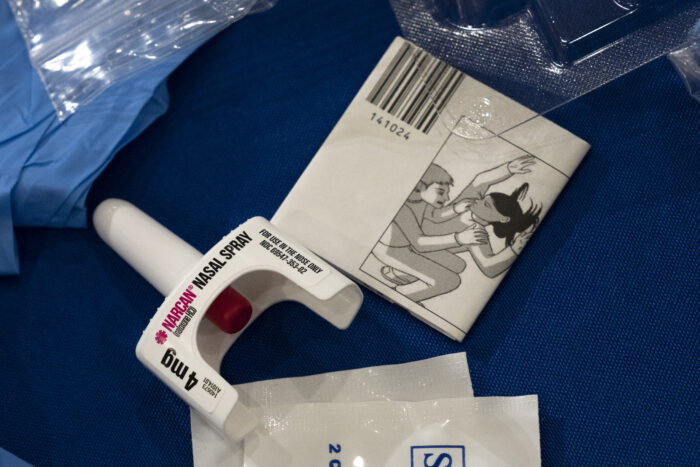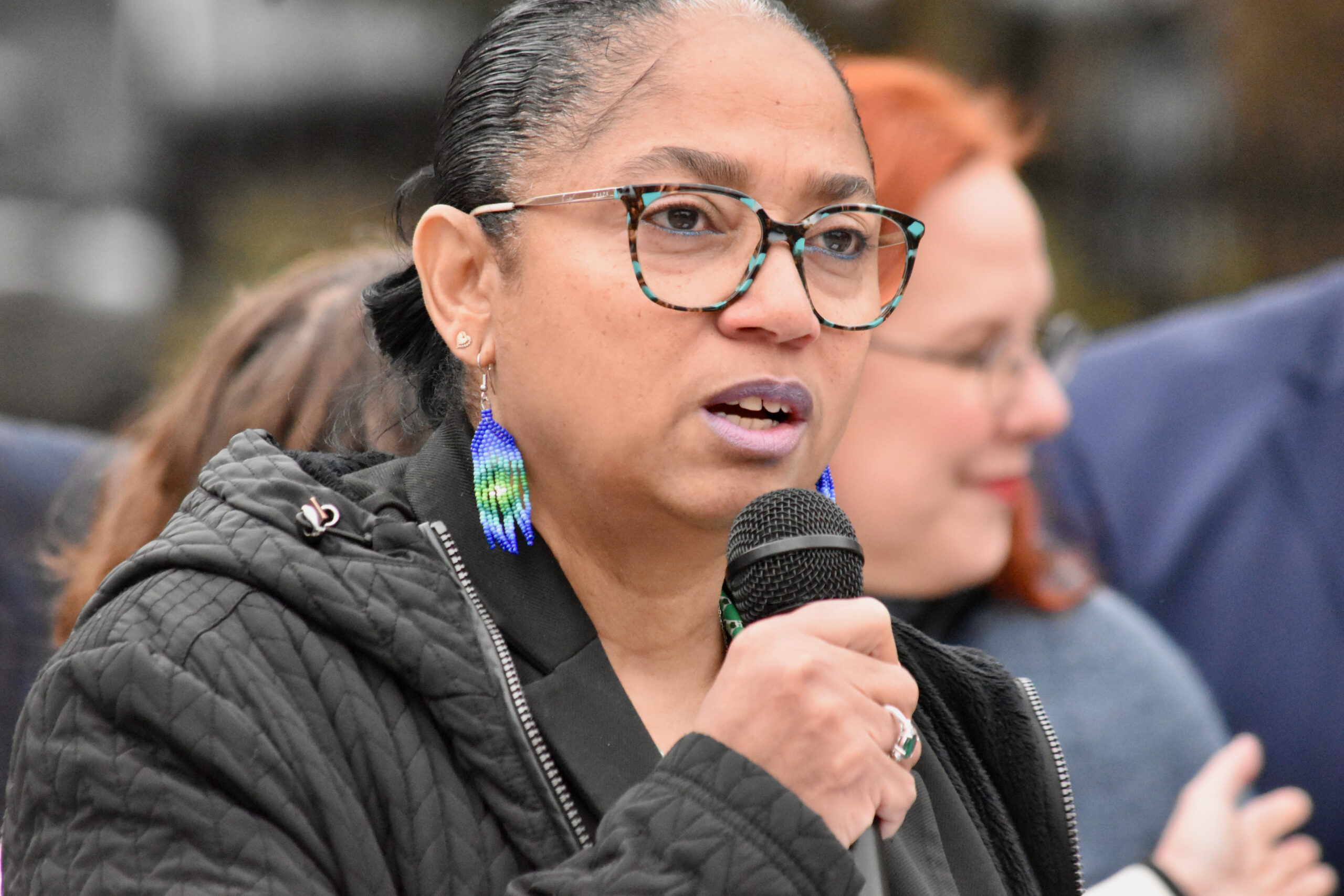After a 36-Year Run, an ‘Accidental Politician’ Prepares To Leave the Stage

Shane Pendergrass knows what it’s like to have her views dismissed out of hand.
As a young mother serving on a school design committee in Howard County during the 1980s, her input was summarily rejected by those in charge.
“Open classrooms” were the fad at the time, she recalled during a recent interview in her Annapolis office, and as a former art teacher, she knew the trend was ill-suited to the needs of educators and students.
“I kept saying ‘We need to have walls, and doors that close,’” she said. “I was not heard. It was: ‘You’re the mother. You’re not a professional. We know what we’re doing.’”
Pendergrass started poking around in school and community affairs when she discovered that her young daughter’s class had to take a test seated on the floor of the “cafetorium,” a room that doubled as a cafeteria and auditorium. Howard was going through a development boom, and schools in her Savage neighborhood and elsewhere over-crowded.
She told the principal the lack of space was “not acceptable” and began to get involved.
She decided to run for the County Council, where land-use decisions are made. When that job became “kind of boring” after two terms, she turned her focus to state issues. A Democrat, she won a seat in the House of Delegates in 1994 and has served there ever since, and she held the Health and Government Oversight Committee gavel for the last six years.
Pendergrass is a policy wonk and a voracious reader, and she is the first to acknowledge she is terrible at the schmoozy side of politics. “I did not grow up with particularly good social skills. And I haven’t really gotten that much better,” she said, throwing her head back in laughter.
She is so resistant to be in the spotlight, she has her subcommittee chairs run public hearings. “I hate being the traffic cop, so I gave it away,” she said. “It turns out that my sub-committee chairmen love being the traffic cop, and they’re wonderful at it.”
When HGO settles in to work on legislation, there is one thing that Pendergrass (the mom who was ignored because she wasn’t “professional”) insists that due consideration be given to each of her colleagues, regardless of party. “I know what it feels like to not have people listen to you.”
Some of the deliberative bills that have emerged from Pendergrass’s committee over the years have been copied by other states.
She said she is proudest of three: One created the tax form check-box that links residents to low- or no-cost health insurance. The second, a “re-insurance” measure, helped stabilize Maryland’s individual health insurance market at a time when it was at risk of imploding. And the third created the state’s prescription drug affordability panel, which supporters hope will one day lead to lower drug prices.
“They were not easy,” said Vincent DeMarco, head of a healthcare advocacy organization. “She was brilliant in the way she ran that committee.”
GOP members of Pendergrass’s committee might not have loved the three measures, but they helped her tweak them in ways that would ultimately win final passage in the legislature. “The Republicans have worked with me to sanitize certain bills to remove certain words that would be inflammatory on the floor,” she said. “So we found ways to take those words out.”
Del. Nicholaus R. Kipke (R-Anne Arundel), who serves on HGO, said he and Pendergrass are “very different” politically and stylistically. “To be quite honest, when I first got here, I wasn’t very fond of her,” he recalled.
“I’ve grown to care about her and think of her as a good friend,” he said last week. “She is a very straightforward, honest — brutally honest — person. It certainly can rub you the wrong way if you don’t know her. I’ve grown to appreciate that honesty.”
Pendergrass’s “honesty” about certain forms of legislative prayer have generated headlines.
Unlike the state Senate, where religious leaders provide a prayer at the start of each floor session, the House starts with words of inspiration from a member. Pendergrass believes they should be inclusive; often they are not. Unable or unwilling to hide her contempt for prayers that invoke Jesus, she developed the practice of slamming the lid of her wooden desk loudly, for all to hear.
“I draw the line at telling me I have to pray in Jesus’ name,” she said. “This is not a Christian country. This is a country that respects all religions. That is something — as a Jew who was raised in an anti-Semitic neighborhood — I am sensitive to.”
Desks in the House chamber were tightened on orders from a former speaker.
Pendergrass said her biggest regret is the failure of “aid in dying” legislation that she sponsored. Critics of such bills, who refer to “end of life options” bills as “assisted suicide,” have been consistently able to block her measure from passing.
Some of her colleagues intend to continue the fight after she retires.
Del. Bonnie Cullison (D-Montgomery), who chairs an HGO subcommittee, called Pendergrass one of the legislature’s “unsung heroes.”
“She doesn’t want to be in the limelight. She’s going to always be working from behind the curtains,” Cullison said. “She is really focused on the policy.”
Cullison said that when Pendergrass’s predecessor, Del. Pete Hammen (D-Baltimore), retired in 2016, “the big question” was whether the committee would maintain what members refer to as its “peace in the valley” ethos.
The lawmaker said Pendergrass worked hard to keep “the commitment to working together — no matter what the philosophical differences are.”
As a result, bills reflect “the conversations,” Cullison said. “(We make) decisions based on what people tell us about why a bill is important, or why it has potential pitfalls.”
Pendergrass prefers to focus on one thing at a time. When an aide sticks his head into the room because a Democratic Senator has stopped by to discuss legislation, Pendergrass sends him away. “No,” she says. “Close the door.”
A grandmother, Pendergrass turned 72 in March. She has never lost an election and is confident that if she ran again, she would win. (“My district is very generous and kind to me,” she explained. “I don’t have to campaign.”)
Nonetheless, she said decided not to seek re-election in order to focus on family and books — and to get back to her first love, watercolor painting. Some of her works line the wall of her Annapolis office.
Pendergrass also confided that she longs to return to the life that she lived before discovering that her daughter’s class had to take exams on the floor.
“I liked being in my house,” she said. “I liked being working quietly by myself. I liked raising my family. I’m kind of not that social. This was a big stretch for me, to run for the Council.”
“I call myself the accidental politician,” she concluded. “This is not what I had in mind for my life.”




 Creative Commons Attribution
Creative Commons Attribution